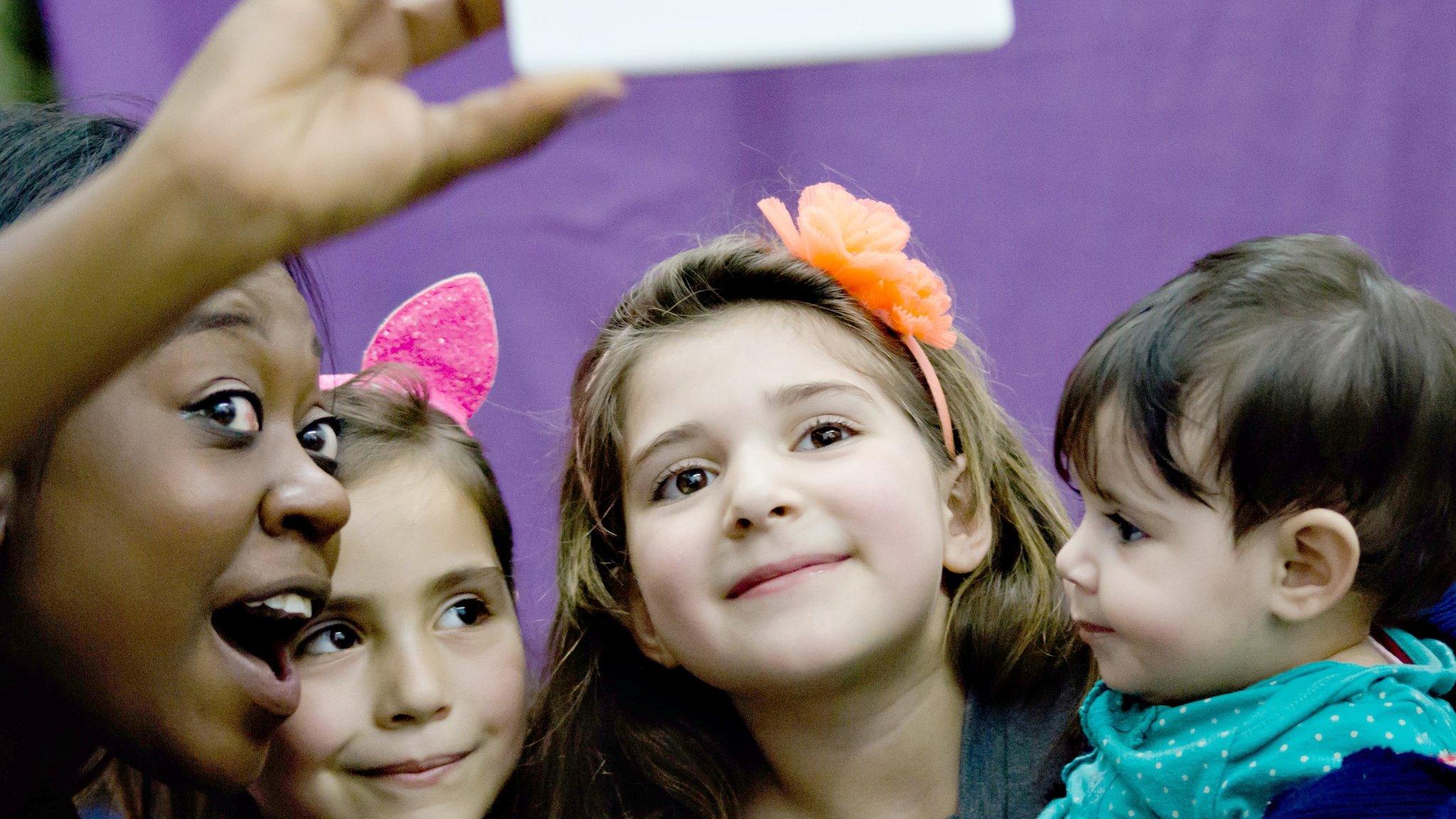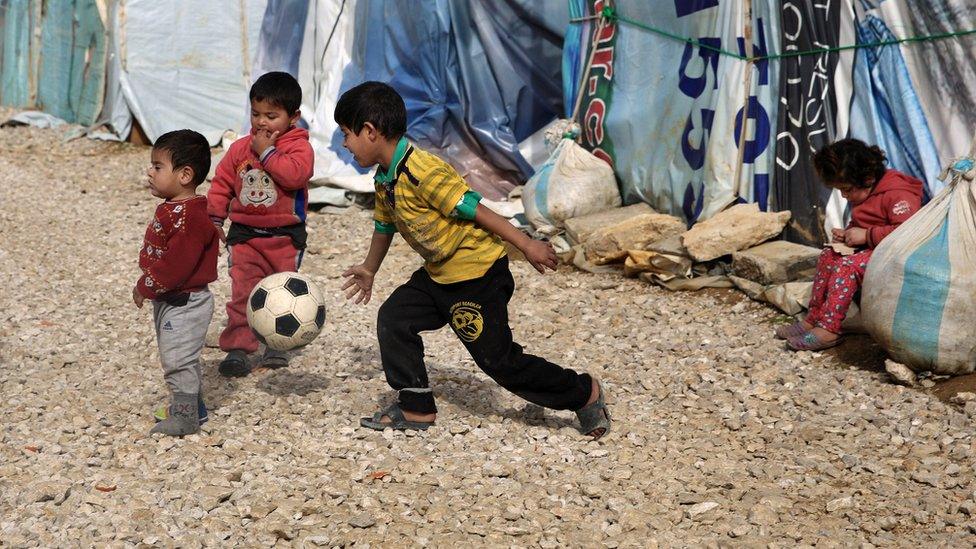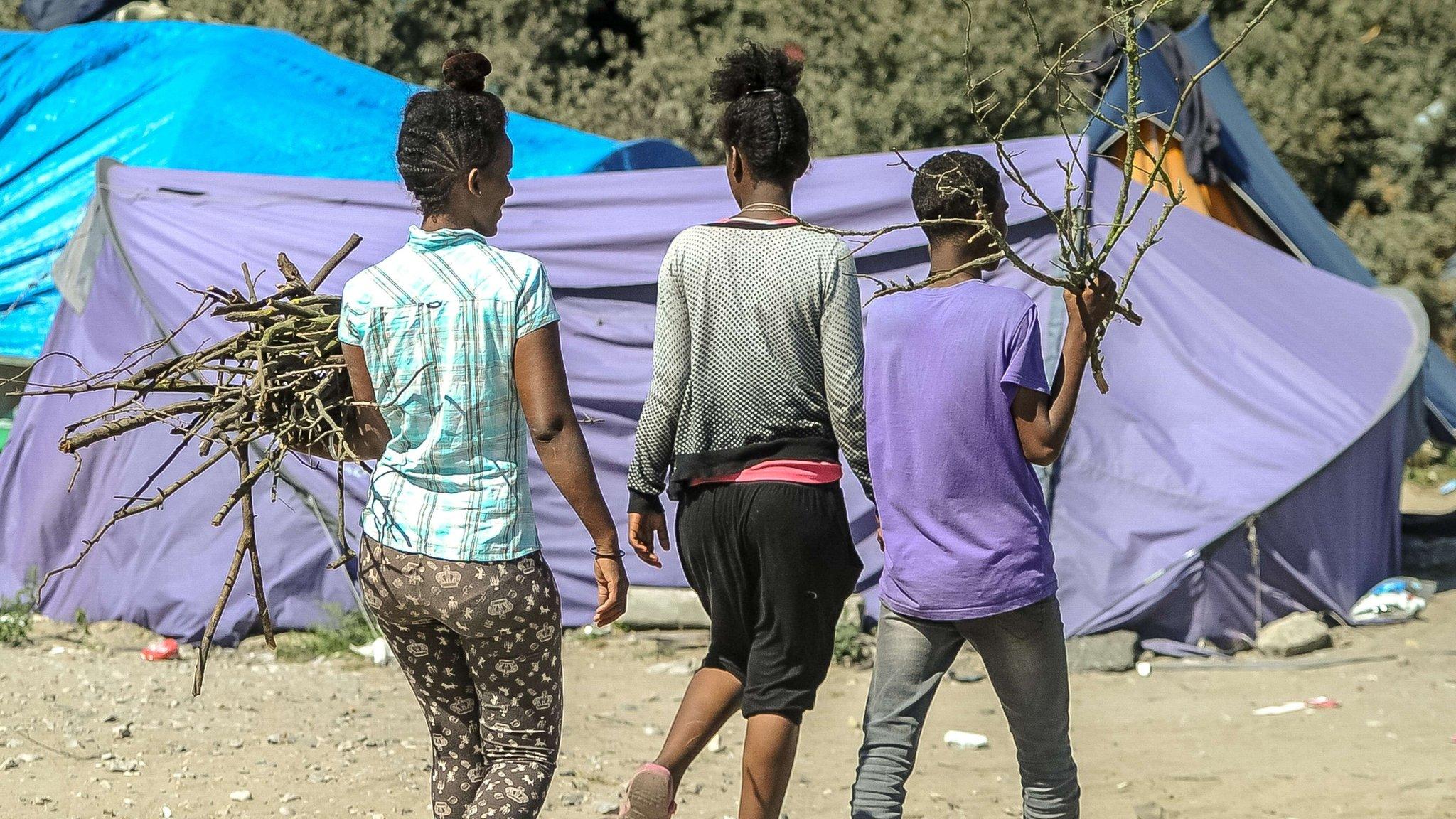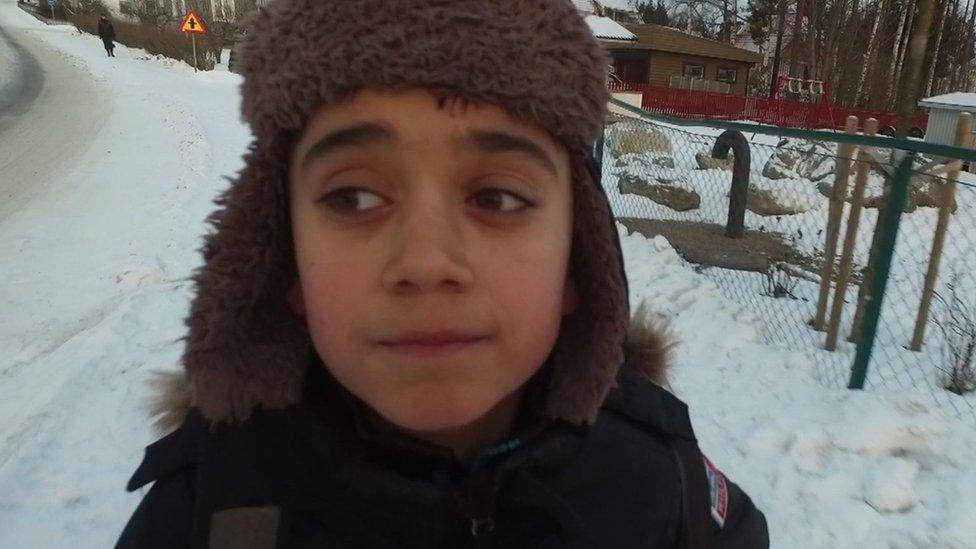Migrant crisis: 'My time with child refugees in Greece'
- Published
- comments

By Ayshah Tull
I travelled to Greece to find out more about the lives of child refugees and migrants who have come to the country, but want to move on. Our team was myself, Sameena, Josh, Marianna and our interpreter called Khalid.
We went to Thessaloniki, which is the northern part of Greece, near the border of another country called Macedonia. It's a place where thousands of migrants and refugees have travelled to.
Most people who arrive here want to move on somewhere else in Europe - and that was the case for all the children who we spoke to. They were happy to be safe in Greece, but they didn't see it as their final home. Find out more below about what we learned.
The boys who had travelled on their own
Ayshah meets some young boys who had travelled to Greece on their own
I met some boys who had travelled across Europe on their own to escape from fighting in their home countries.
When we arrived in Thessaloniki, the first place we went to was a centre run by a special youth organisation called Arsis, to meet children who had come to the country all by themselves.
It's really difficult to be allowed to speak to kids like this, as they don't have their parents with them. But the charity let us to come into the centre because they said they wanted people to hear the children's stories.
The boys came from Afghanistan, Syria and Pakistan. I sat with them for hours hearing their individual stories about the journeys they had made across Europe in the hope of finding safety.
Hamid, 15, from Afghanistan said he walked for 60 hours on foot - even over mountains. He said the person who was meant to be guiding them didn't actually know where he was going.
Amir, 16, also from Afghanistan said he had been a refugee twice. He lived in Iran, but found he didn't have any right to be there, so his family told him to go to Europe and send for them later.
Most of the boys I met didn't want to stay at the centre, even though they were safe there. They wanted to move on to other countries - mainly Sweden and Germany - but they didn't know how to get there.
On the way to being reunited with family
Newsround met seven-year-old Farah, her mum and her best friend Sana.
We then went to a second shelter, which was a 20-minute drive away from the city centre. This one was for families.
We met seven-year-old Farah, along with her mum and her best friend Sana.
Farah's story is more positive than the boys I met earlier. She was spending her last few weeks in Greece before being reunited with the rest of her family in Germany.
The young boys in her family travelled on their own to Germany - ahead of her. They were 10, 16 and 18 when they left Syria. The family have not seen each other for 6 years.
When I asked Farah about her situation now in Greece, she told me: "Every child has a home, but we don't have one."
She also said she would miss her best friend Sana from the camp, because they play dress up games together and pretend they take imaginary daughters to the park.
The team set up to find child refugees
In Thessaloniki, Natasha Anastasiadou and her team go on a daily search for child migrants who are out on their own
Finally, we met a woman called Natasha Anastasiadou. Together with her team, she goes on a daily search around the streets of Thessaloniki for child migrants and refugees who are out on their own.
It's a new project, which was only started a couple of months ago. The team take it in turns to patrol around, during the day and during the night as well. She invited me to go out searching with her.
When they find kids who are by themselves and may be in danger, they take them to one of their shelters where there are councillors, lawyers and other adults who give them food, a place to live and advice.
- Published17 October 2016

- Published12 August 2015

- Published27 February 2017

